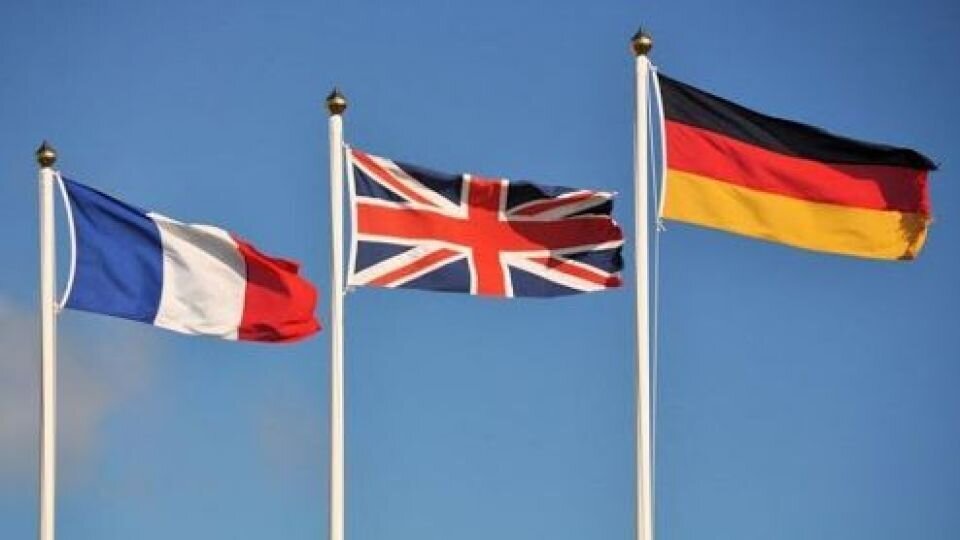E3 following in the footsteps of the U.S.

TEHRAN – With talks over reviving the 2015 Iran nuclear deal hanging in the balance, major European powers has doubled down on their dependence on the United States.
Relations between Iran and Europe, particularly the three European signatories to the 2015 Iran deal -France, Germany, and the UK (E3)- are deteriorating as a result of hostile measures taken by the E3 over the last few months. The E3 began ramping up diplomatic pressure on Iran since last September when nationwide unrest broke out in Iran in the wake of the death of Mahsa Amini in police custody. While the unrest has come to an end, the E3 continues to ratchet up pressure against Iran with the execution of Alireza Akbari serving as a catalyst in that regard.
The latest hostile move from the E3 was Germany summoning the Iranian ambassador over alleged human rights concerns. “I can confirm that the Iranian ambassador was summoned to a meeting at the Foreign Office today,” a spokesperson for the German foreign ministry said, according to Reuters.
By summoning the Iranian ambassador, Germany followed the path of France and the UK. This comes at a time when there are growing debates in Europe about designating the Islamic Revolution Guards Corps (IRGC) as a terrorist group, a move that will further dampen hopes for a revival of the Iran nuclear deal, officially known as the Joint Comprehensive Plan of Action (JCPOA).
When former U.S. President Donald Trump designated the IRGC in 2019 there was a strong undertone of dissatisfaction in Europe out of concerns that the move would prevent the revival of the JCPOA under the next president. Fast forward to 2023, the Europeans are mulling listing the IRGC as a terrorist organization which is indicative of the extent to which the Europeans are ready to follow in the footsteps of the White House.
The E3 have signaled that they are open to the controversial move despite the fact that the JCPOA talks are still underway. Peter Stano, the lead spokesperson for the external affairs of the European Union, said Monday that the JCPOA talks are still ongoing, according to Fars News.
But continued hostility from the E3 has cast a long shadow on these talks, if not killed them. Pundits believe that the E3 have joined forces with the U.S. to turn up the heat on Iran with the aim of pushing Iran back in the realm of foreign policy.
“Putting pressure on Iran with the aim of weakening Iran's image among global public opinion, alienating it from allies, limiting Iran's role in regional and international issues, and in a word, ‘pushing Iran back’ in foreign policy, are the most important goals three European countries along with the U.S. have been pursuing,” Iran’s state news agency IRNA said in a report.
According to IRNA, they also seek to extract maximum concessions from Iran in the nuclear talks.
The rising tensions between Iran and the West in general also raised questions on what may come next. Observers believe that the current state of play between the two sides is not moving in the direction of de-escalation and that the possible escalation of tensions could at some point kill the last remaining hopes for a resuscitation of the JCPOA. Therefore, the West needs to think about the consequences of its moves on Iran, particularly after it signaled openness to reviving the deal.
However, Iran repeated calls for diplomacy was met with sanctions and threats coming from the West.
Mikhail Ulyanov, the Russian representative to the Vienna-based international organizations, referred to this Western apathy toward the JCPOA talks. “The best way to prevent negative trends in the region would be finalisation of the #ViennaTalks on the #JCPOA. A breakthrough in this field can ease tension and open the way to intensified dialogue on regional security. Apparently Western countries are not ready for that,” he said on Twitter.
Leave a Comment